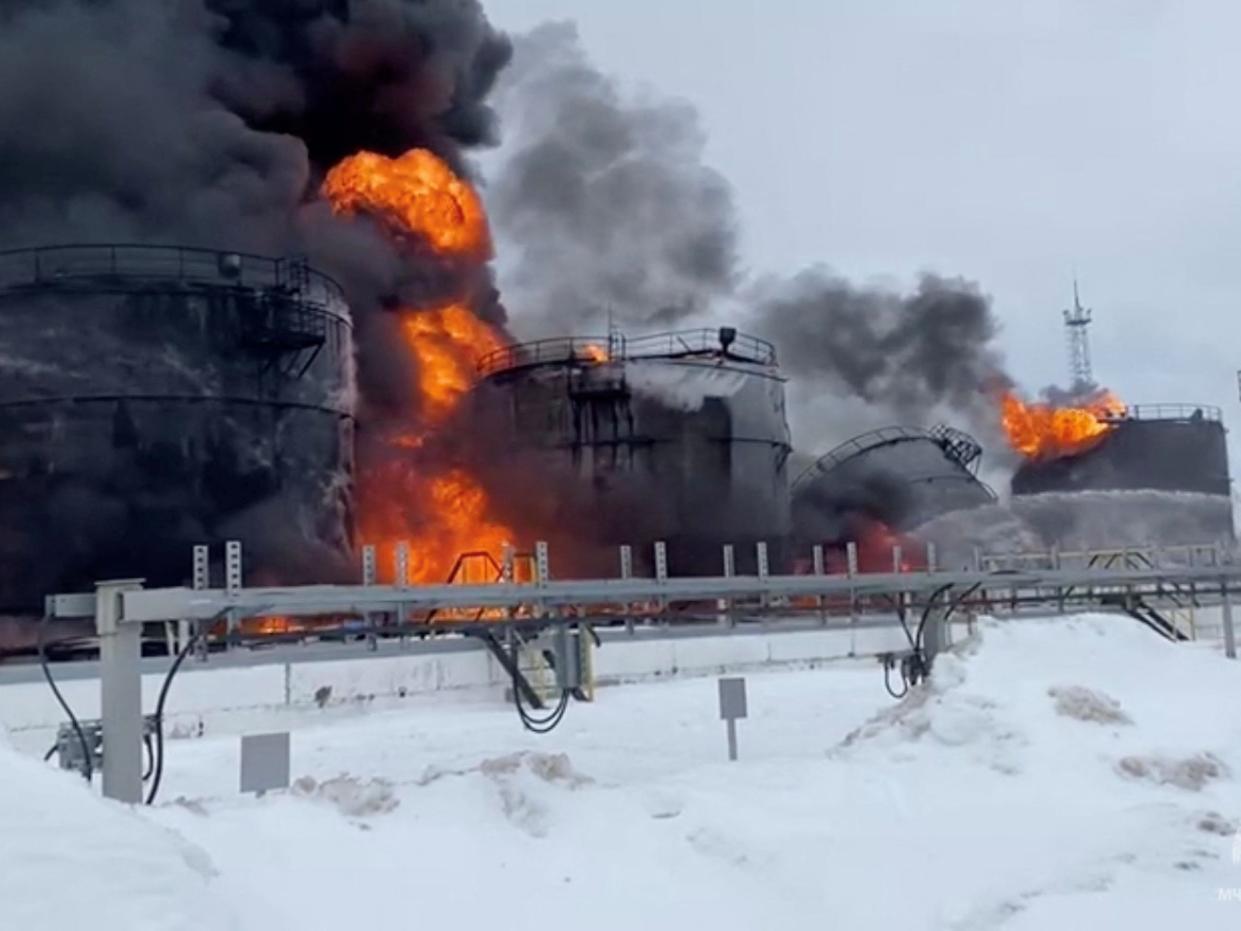Ukrainian attacks on Russian oil refineries may be proving the Biden administration wrong, experts say

- Oops!Something went wrong.Please try again later.
Ukraine has been targeting Russian oil refineries in recent months.
The Biden administration has criticized the strikes, warning of global energy price rises.
However, some experts say Ukraine should continue the attacks. Here's why.
Ukraine has been ramping up attacks on Russian oil refineries in recent months as it seeks to hamper Russian export revenues and curtail fuel supplies to Russian President Vladimir Putin's forces.
In one of the latest attacks, Ukrainian drones struck an oil refinery in Russia's Kaluga region, setting it on fire, the RIA state news agency reported on Friday, per Reuters.
Ukraine also hit Gazprom's Neftekhim Salavat oil refinery, one of Russia's largest oil refineries, earlier this week, Radiy Khabirov, the head of Russia's Republic of Bashkortostan, said in a post on Telegram.
However, the Biden administration has previously slammed such tactics, with Defense Secretary Lloyd Austin saying in April that it risked impacting global energy markets and urging Ukraine to shift its focus onto military targets.
"Those attacks could have a knock-on effect in terms of the global energy situation," Austin said. "Quite frankly, I think Ukraine is better served by going after tactical and operational targets that can directly influence the current fight."
However, some experts believe such criticism is misguided.
Writing for Foreign Affairs magazine, Michael Liebreich, the founder of Bloomberg New Energy Finance, Lauri Myllyvirta, lead analyst at the Centre for Research on Energy and Clean Air, and Sam Winter-Levy, a doctoral candidate in political science at Princeton University, argued that Ukrainian strikes on Russian refining facilities would not lead to spikes in global energy prices.
The experts said that Ukrainian attacks on oil refineries would only hinder Russia's ability to turn its oil into refined products such as gasoline and would not impact the volume of oil it can extract or export.
"In fact, with less domestic refining capacity, Russia will be forced to export more of its crude oil, not less, pushing global prices down rather than up," they added.
And such strikes will likely continue to affect those within Russia, where prices for refined products like gas or diesel are soaring — meaning Ukraine's attacks are achieving the aims of failed Western economic sanctions, they continued.
The West has attempted to impose a number of sanctions on Russia to limit its income from energy, with the US and the UK banning Russian oil and gas and G7 leaders agreeing to set a price cap on Russian crude oil at $60 per barrel.
But Russia has largely managed to get around such measures, with its Deputy Prime Minister, Alexander Novak, saying in December last year that Russia had shifted almost all of its oil exports to China and India.
Russia's oil revenue in April more than doubled year on year, Bloomberg reported, highlighting its success in rediverting operations.
Its total oil and gas revenue for the month hit 1.23 trillion rubles, up almost 90% from April last year, per the report.
Reuters reported in April that Russia also appeared to be able to quickly repair some of the key refining facilities affected by Ukrainian strikes, reducing impacted capacity to roughly 10% from nearly 14% at the end of March, per the agency's calculations.
Ukraine has since launched a series of new attacks on refining sites, however, and it is as yet unclear how these have affected Russia's repair efforts.
Read the original article on Business Insider

